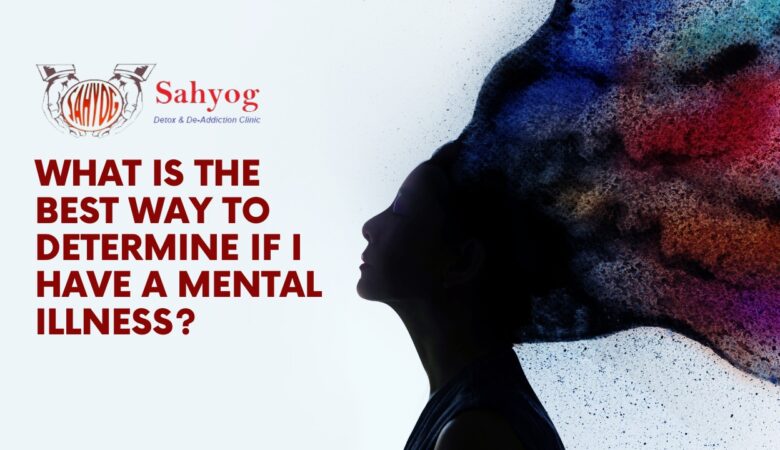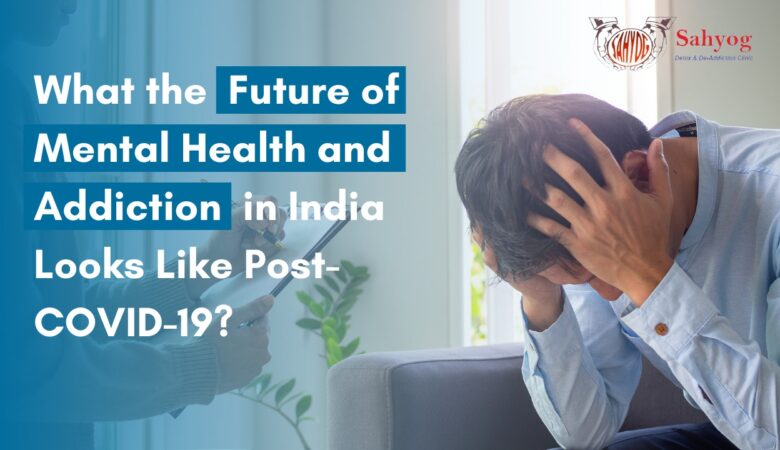What is the best way to determine if I have a mental illness?
If you’re worried about having a mental illness, you’re not alone. Mental illness has become more common recently and can touch anyone, regardless of their race, age, gender, or socioeconomic status is. However, this increased prevalence of mental illness also means that it’s more common to struggle with one or more of these illnesses than to not have one at all. Mental illness can have significant negative effects on your social, emotional, and even physical wellbeing, but it’s often difficult to recognize when you’re suffering from one. In fact, there are many who don’t recognize mental illness as an illness at all and self-diagnose, which can lead to self-medicating with drugs or alcohol. So, how do you know if you have a mental illness? If you suffer from issues such as anxiety, depression, or chronic stress, there’s always the possibility that you have an underlying mental illness that needs treating. While many people can cope with their mental health on their own, others require medical intervention to get better. Figuring out whether you require treatment for a mental illness can be difficult if you don’t know where to start. Here are some of the most common signs that you may have a mental illness and what you can do about it. Do you worry too much? Do you find yourself worrying about things that you shouldn’t be worrying about? Or Do you often feel anxious or stressed? If you answered yes to these questions, then you might be suffering from a mental illness. Mental illnesses are very common, affecting millions of people around the world. If you think you might have a mental illness, it’s important to see a doctor or mental health professional as soon as possible. They will be able to help you get the treatment you need. It is also crucial for loved ones and friends to provide support and encouragement throughout this process. It can be difficult for someone with a mental illness to reach out for help on their own, so knowing how to offer your support can make all the difference in the world. The most significant thing is just being there for them during this difficult time in their life. You don’t have to say anything–sometimes just listening is enough. Make sure they know that you’re always willing to lend an ear whenever they require it, regardless of what the situation may be. Do you get angry too often? It’s normal to feel angry from time to time. But if you find yourself getting angry more often than not, it could be a sign of something more serious. The same can be said for any other mood disorder as well. If you’re feeling sad all the time, or are feeling down and out without any reason whatsoever, it might not just be because life is tough occasionally. In that case, go see your doctor and ask them what they think! They will do some diagnostics on you, but they’ll also listen to what you have to say about how you’re feeling. They will also speak with family members who know about your symptoms too. Your doctor may prescribe medication for anxiety or depression if necessary (although these can’t cure mental illnesses). Sometimes therapy or counseling is helpful too—this would be talking to someone who knows how depression works and how we can try to overcome it. One last thing: there’s no shame in seeking help! Mental illnesses are nothing to be ashamed of and believe me, others have felt the same way at one point or another. So, why don’t you get started today? Schedule an appointment and make sure to tell your doctor everything you’re feeling, so they can help you identify the problem. Once you’ve done that, take care of yourself by doing things like exercising and eating right so that your body feels good again. You deserve it! Do you like socializing with friends less than in the past? If you’ve noticed that you’re suddenly not as interested in socializing with friends as you used to be, it could be a sign that something is wrong. It’s possible that you could be dealing with depression, anxiety, or another mental illness. You should talk to your doctor about your symptoms, and he or she will give you some advice on what steps to take next. If you notice changes in your sleep habits, appetite, mood, or interest levels in things like work and hobbies, these are also signs of a mental illness. Mental illnesses can come from physical health problems, such as infections like HIV/AIDS and Zika Virus. Mental illnesses can also come from stressors such as conflict at home and school/work-related issues. When faced with a mental illness, knowing how to handle it is significant. One of the first steps you should take when faced with a mental illness is identifying which one it is because different illnesses require different treatments. The sooner you find out what kind of disorder you’re suffering from, the sooner you’ll know how to treat it! Have you lost interest in your hobbies? When people are going through a tough time, it’s common for them to lose interest in activities they once enjoyed. This can be a sign that something more serious is going on. If you’ve lost interest in your hobbies, it may be time to seek professional help. Mental illnesses like depression and anxiety often cause symptoms like these. Even a little change can mean that you need help. It might seem easier to brush it off or put up with the feeling, but there’s nothing wrong with seeking help from a qualified therapist. You deserve better than feeling unhappy all the time. A therapist will listen to what you’re going through and offer guidance so that you can get back on track. Seeking treatment will only benefit you, not hinder your life. There are many types of therapy available, including cognitive behavioural therapy and dialectical behaviour therapy. These therapies aim to


